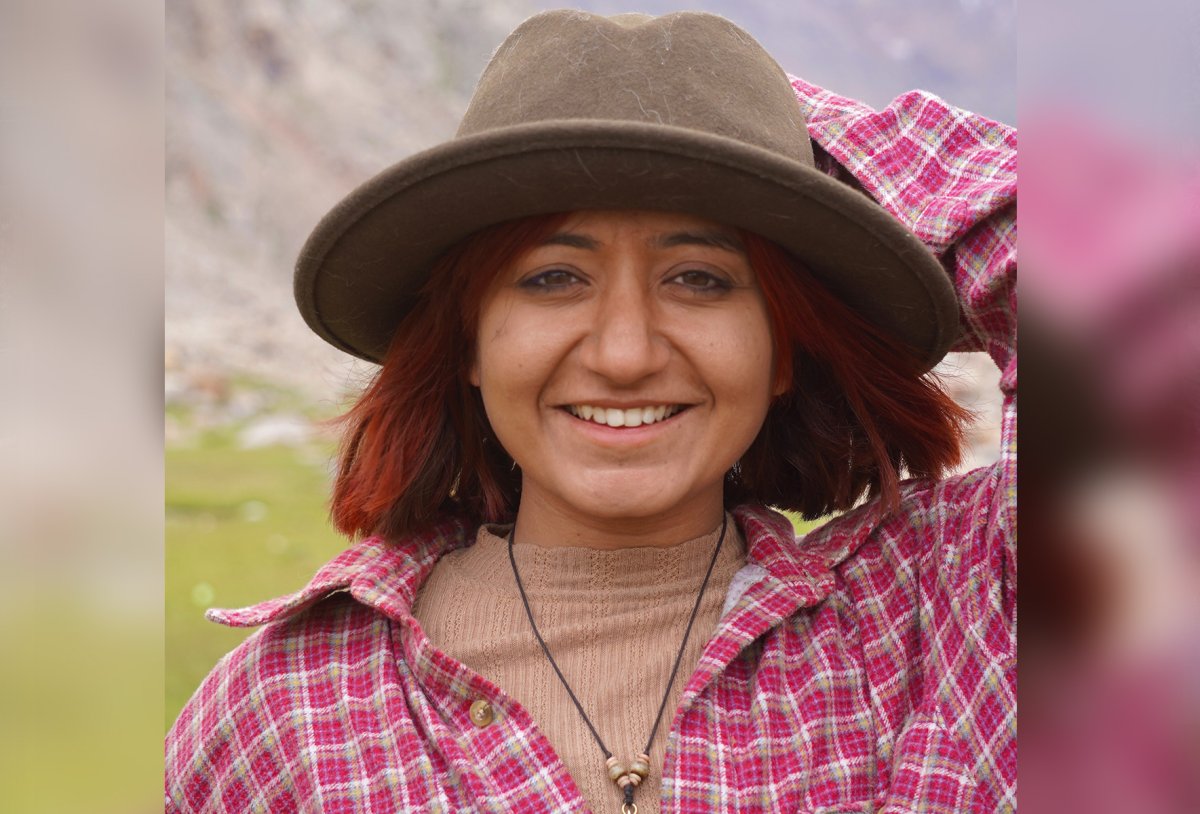Thrill seekers regularly head to the Himalayas to climb and trek through some of the toughest and most beautiful terrain in the world. Most of the time, everything goes smoothly, but occasionally explorers find themselves in terrifying and life-threatening situations.
Prakriti Varshney, 27, from Delhi, India recently found herself in an impossible position while making her way to the summit of Mount Makalu on the May 15, 2023.
The mountain stands 8,481 meters (27,825 feet) above sea level, the fifth-highest mountain peak in the world, and after an intense and laborious ascent to the top, she began coming down, only to discover that she had run out of oxygen due to over using it in the extremely windy conditions. "Nobody cared," she said in an Instagram caption of a video that has over 150,704 likes.

"I recorded a video explaining how I felt after I managed to reach the camp after spending 24 hours in extreme situations," Varshney told Newsweek. "I started crying out of extreme exhaustion and realizing that I could have died, or it may have been because I was aware I still had 800 meters down to go to base camp. I recorded it out of gratitude for still being alive, and fear that I still might not make it, so I recorded the video for my family."
It took Varshney 13 hours to descend 800 meters.
Mount Makalu is located in the Mahalangur Himalayas, southeast of Mount Everest, on the China–Nepal border and it's one of the deadliest mountains on Earth.
Varshney has been trekking up and around mountains since 2016, climbing her first technical mountain in 2021.
"Emotionally, I was really low," she said. "I didn't know if I would be able to manage the descent safely as physically I was exhausted and in pain. I had mild frostbite in my toes, a pain in my chest and lungs, I was dehydrated, tired, and I felt incredibly lonely."
Varshney explained that on realizing her oxygen tank was empty, she asked around in the group and claims people were unwilling to help her. "I mean, I understand," she said. "How could they give me their oxygen bottle when they were in a situation similar to mine, but like a normal human being, I expected someone to say I can help or just try to help in some way. Everyone ignored me."
There is an ethical dilemma plaguing the heavily commercialized extreme climbing world. In 2022, the average individual price of climbing to the Everest summit was $54,972, which includes permits, training, gear, sherpas and insurance. High prices, extreme conditions, fear and a determination to reach the peak mean that on mountains such as Everest and Makalu, fellow climbers are often unwilling or unable to offer aid to anyone else, sometimes leaving people to die on the mountain.
This year, Nepal granted a record 463 permits to climb Everest, leading to concerns about queues in what is known as the "death zone," above 8,000 feet, according to Reuters. People have been queuing in large numbers waiting to summit Everest, standing still in extreme conditions. Nine people died in this area in May 2019.
"I don't blame anyone for not helping," said Varshney. "It is just, at that moment I needed someone to tell me that everything was going to be okay. But I understand the sport of mountaineering and you save your life first. I understand that everybody was busy with their own struggles."
Users were critical of her in the comments.
"But you knew the risks. There isn't much anyone can do, people can't baby you up there, it's either you or them," said one Instagram user. "Why is it anyone else's problem on that mountain if you don't make it? It's every man for himself, only person to rely on is you," said another.
Some offered messages of support. "I cannot believe that people are taken back that you expected others to help you? Regardless of the circumstance we should all be here to help one another, my goodness. Glad you are alive, thank you for sharing," said one user.
Do you have great travel stories or videos you want to share? We want to see the best ones! Send them in to life@newsweek.com and they could appear on our site.
Uncommon Knowledge
Newsweek is committed to challenging conventional wisdom and finding connections in the search for common ground.
Newsweek is committed to challenging conventional wisdom and finding connections in the search for common ground.
About the writer
Leonie Helm is a Newsweek Life Reporter and is based in London, UK. Her focus is reporting on all things ... Read more
To read how Newsweek uses AI as a newsroom tool, Click here.








